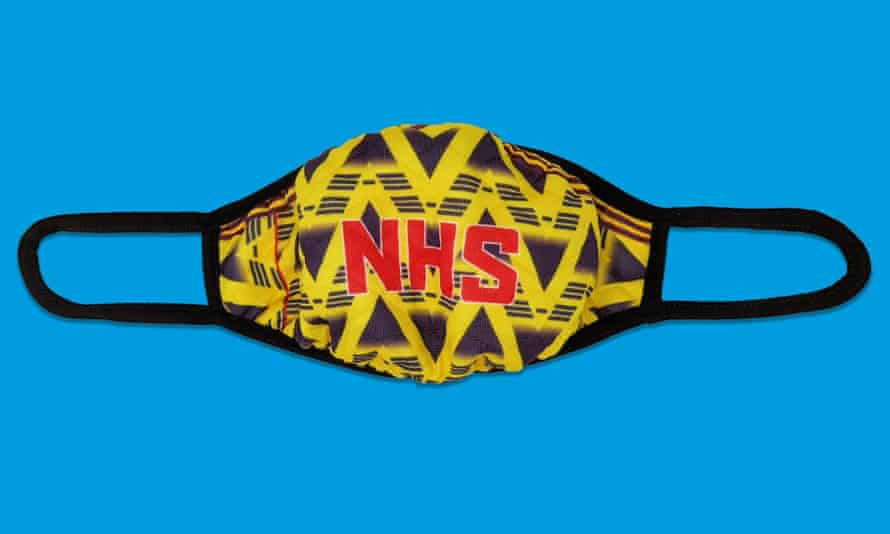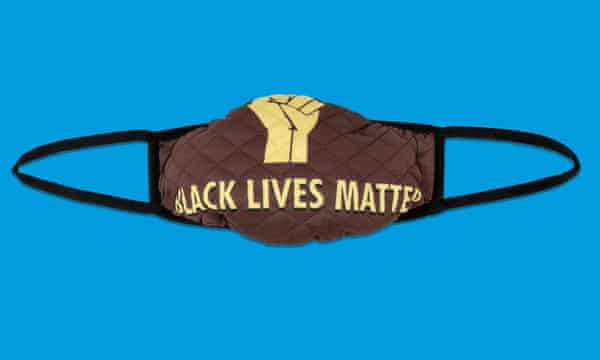Opening exactly a year after the UK government advised people to start wearing face coverings in public, a new exhibition plots the risky journey of the face mask from health necessity to fashion statement.
Undercover, which begins online on 11 May at the Westminster Menswear Archive, will feature 52 masks from a wide range of sources, from the Metropolitan police and Manchester City FC to Paul Smith and boohooMAN.
“We thought it was an excellent moment to reflect on how quickly our relationship with face coverings has evolved over the last 12 months,” said the co-curator Prof Andrew Groves.
The exhibition will also feature a parallel photographic element articulating how masks have become highly disposable and a danger to the environment.
“The public attitude to masks over the last 12 months has hardened,” said Groves. “For such an unassuming and uncomplicated object, they have quickly become a symbolic and contentious artefact.” He said that as well as becoming an everyday item, for some people the mask had attained a darker symbolism. “They have also become a means of policing other people’s dress and behaviour.”
Groves said the fashion industry had a complicated relationship with masks. Though some labels had masks in their collections before the pandemic, most notably Virgil Abloh’s Off-White, everything changed in March 2020. “Covid-19 has compelled all brands to take a position on masks,” Groves said, adding: “We were surprised that designers didn’t produce masks for most of the year.”

It has been an awkward dance for fashion labels, which have flitted between considering the mask as public health object and fashion accessory. “I think it’s interesting how quickly men adopted new styles of wearing them [when not in use]: initially under the chin, but late last year, there was a significant amount of men wearing them hanging off one ear,” said Groves.
The most surprising part of the exhibition is perhaps that none of the 52 masks are classed as personal protective equipment (PPE), and “legally they all are at pains to point that out on their websites and packaging”.
This perception gap around many masks not being PPE is highlighted by the Royal Mail’s in-house face coverings, featured in the collection. “Mass produced in China, [the mask] was issued to staff in January 2021 but was quickly criticised due to the product’s labelling which read: ‘For fashion, dress-up, party (non-medical),’” said Groves.

Some of the face masks in the exhibition feature slogans that refer to some of the most important political moments of the last 12 months. These include Climate Revolution’s “true punk” and others referencing Black Lives Matter and the NHS. “Political masks force us to acknowledge the message when we speak to the wearer,” said Groves. “They are literally in your face.”
The trend forecaster Giulia Ceriani thinks masks “are going to stay with us, just as umbrellas or scarfs do, to be used whenever we need, to comfort when we feel scared or just overexposed to an unknown danger”.
Groves, however, said they could become “too upsetting to be worn in a fashion context because they are symbolically linked to illness and trauma”.
This content first appear on the guardian
